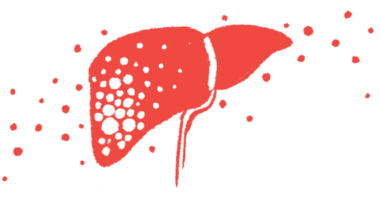OTC cimetidine may build tolerance to sun, improve life quality in EPP
Cases of 4 children in Italy show use of oral therapy is effective, safe

Treatment with cimetidine, an over-the-counter (OTC) medication normally used to treat heartburn, may help children with erythropoietic protoporphyria (EPP) build tolerance to sunlight — and this may translate into better quality of life — according to reports of EPP cases in Italy.
“Based on the literature and our clinical experience, [treatment] with cimetidine is effective and safe in improving tolerance to sun exposure,” the researchers wrote.
All children treated with the oral medicine increased their time spent outdoors, the study noted.
“Questionnaires showed that the use of cimetidine led to an improvement in their [quality of life],” the team wrote.
The report, “Erythropoietic protoporphyria: case reports for clinical and therapeutic hints,” was published in the Italian Journal of Pediatrics.
Cimetidine is readily available as an OTC medication for heartburn
Erythropoietic protoporphyria is a type of porphyria caused by mutations in the FECH gene, which codes for an enzyme called ferrochelatase. This enzyme is responsible for the final step of a multipart process to make heme, a key component of many proteins, particularly hemoglobin — a protein found in red blood cells that, among other functions, carries oxygen from the lungs to the tissues.
The disease often manifests during infancy, but in some cases, it may not occur until adolescence. When exposed to the sun, patients experience itching or burning of the skin; longer exposure can result in severe pain. Gallstones and liver damage also may develop.
The standard of care for erythropoietic protoporphyria involves avoiding sunlight or wearing protective clothing. However, some reports have suggested that “cimetidine may have a role in improving sun sensitivity,” the researchers wrote.
Cimetidine, sold as an OTC medication under the brand name Tagamet HB among others, with generics available, is usually used to treat conditions that cause too much acid in the stomach. It’s often taken by people with heartburn, stomach ulcers (sores), and reflux disease.
But because cimetidine can block the enzyme responsible for the first step in the process to make heme, it’s believed that its use may prevent heme precursors from building to toxic levels in cells. As such, it’s thought the cimetidine may help to ease symptoms of porphyria in children with the genetic disease.
Now, researchers described the cases of five children, ages 12 to 17, who were diagnosed with erythropoietic protoporphyria by genetic testing and cared for at a single center in Italy.
Over the years, all of the children had experienced recurrent episodes of tingling, itching, or burning in the hands and feet after sun exposure. Three of them also experienced swelling, known as edema, and one had signs of liver damage.
“Skin manifestations are the main reason for investigations, although sometimes they can be more subtle, leading to a significant diagnostic delay,” the researchers wrote.
Four of the children received two doses of cimetidine at 20 milligrams per kilogram per day (mg/kg/day) during the spring and summer periods, as an addition to standard therapies. All four reported better tolerance to sunlight and less severe symptoms.
Treatment with cimetidine appears to be an excellent therapeutic option in children with erythropoietic protoporphyria.
The effect of treatment with cimetidine on quality of life was assessed using the Erythropoietic Protoporphyria Quality of Life (EPP-QOL) questionnaire. The total EPP-QOL score ranges from zero to 36 points, with higher scores indicating better quality of life.
All four children reported increases in their total EPP-QOL score after two months of treatment with cimetidine, indicating better quality of life. Moreover, all reported an increase in the hours spent in outdoor activities. None of them had side effects.
One child, a 15-year-old boy with a seven-year history of severe itching and pain in the hands and feet after sun exposure and physical exercise, “did not start the treatment because he did not feel the need to increase sun exposure.”
“Treatment with cimetidine appears to be an excellent therapeutic option in children with erythropoietic protoporphyria,” the researchers concluded, noting that it resulted in better quality of life for children with the disease.







